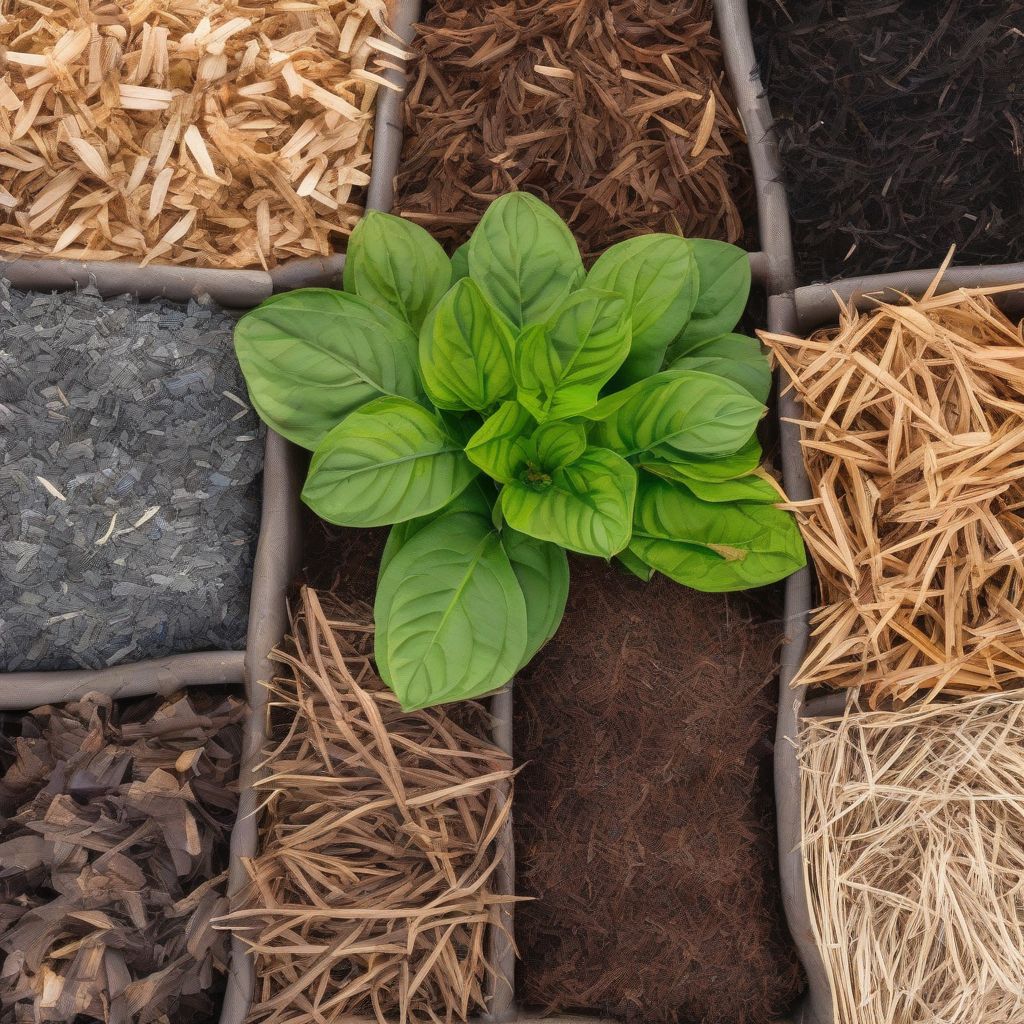Imagine this: it’s a scorching summer afternoon. You step out into your garden, expecting drooping leaves and thirsty soil, but instead, you’re greeted by a vibrant oasis. Your plants are thriving, the soil is cool and moist, and weeds are nowhere to be seen. What’s the secret? It could be the magic of mulch!
You see, while I might be an expert in crafting delicious and healthy meals, I believe in a holistic approach to well-being. And that includes spending time in nature, nurturing a thriving garden. Over the years, I’ve learned a thing or two about keeping my plants happy, and mulch has become my secret weapon.
Whether you’re a seasoned gardener or just starting, understanding the importance of mulching can be a game-changer. So, let’s dive in and uncover the wonders mulch can do for your garden!
What is Mulch and Why Should You Care?
In simple terms, mulch is like a protective blanket for your soil. It’s a layer of organic or inorganic material spread over the surface, and it comes with a treasure trove of benefits.
Think of mulch as a superhero cape for your garden, shielding it from harsh weather, pesky weeds, and moisture loss. But its powers go beyond mere protection – mulch is also a master of soil improvement.
Unmasking the Benefits: Why Mulch is a Gardener’s Best Friend
1. The Water Whisperer: Mulch’s Moisture-Locking Magic
Remember that scorching summer afternoon scenario? Mulch plays a crucial role in preserving soil moisture, acting like a sponge that absorbs and retains water. This means less frequent watering for you, and happier, healthier plants even during dry spells.
2. Weed Warrior: Mulch’s Defense Against Unwanted Guests
Weeds are the uninvited guests at every garden party, competing with your precious plants for nutrients and sunlight. Mulch acts as a natural weed barrier, suppressing their growth and saving you from hours of back-breaking weeding.
3. Temperature Controller: Keeping Your Soil Cool and Collected
Just like we prefer a comfortable room temperature, our plants thrive within a specific soil temperature range. Mulch acts as an insulator, keeping the soil cooler in the summer and protecting roots from frost during winter.
4. Soil Superhero: Mulch’s Secret to Richer Earth
As organic mulch breaks down, it releases valuable nutrients into the soil, improving its structure and fertility. This means your plants receive a slow and steady supply of essential nutrients, leading to healthier growth.
Choosing Your Mulch: Finding the Perfect Match for Your Garden
Just like choosing the right ingredients for a recipe, selecting the appropriate mulch depends on your garden’s specific needs.
Organic Mulch: Nature’s Bounty for Your Garden
This type of mulch includes materials like wood chips, bark, compost, straw, and leaves. It decomposes over time, enriching the soil with nutrients.
Best for: Vegetable gardens, flower beds, and areas where you want to improve soil fertility.
Inorganic Mulch: Long-Lasting Protection and Visual Appeal
Think of materials like gravel, pebbles, and landscape fabric. These options don’t decompose, offering long-lasting weed control and moisture retention.
Best for: Pathways, decorative gardens, and areas where you want a low-maintenance option.
 Types of Mulch
Types of Mulch
Mulching Like a Pro: Tips for Maximum Benefits
1. Timing is Key: When to Mulch
Spring and fall are ideal times for applying mulch. In spring, it helps retain moisture after the winter thaw, while in fall, it protects the soil from frost and erosion.
2. The Right Depth: Finding the Sweet Spot
A 2-4 inch layer of mulch is generally recommended. Avoid piling it too high, especially around the base of plants, as this can lead to moisture problems and even damage the plant.
3. Maintenance Matters: Keeping Your Mulch in Tip-Top Shape
Over time, organic mulch decomposes and needs replenishing. Add a fresh layer annually or as needed to maintain its effectiveness.
Beyond the Basics: Unlocking the Full Potential of Mulch
- Disease Prevention: Mulch can act as a barrier, preventing soil-borne diseases from splashing onto plants during watering.
- Erosion Control: In sloped areas, mulch helps prevent soil erosion caused by wind and rain.
- Aesthetic Appeal: Mulch gives your garden a polished look, creating a cohesive and visually appealing landscape.
The Last Sprout: Embracing the Mulch Advantage
Just as choosing the right ingredients elevates a dish, incorporating mulch into your gardening routine can significantly impact your garden’s health and beauty. It’s a simple yet powerful practice that yields incredible results.
So, embrace the magic of mulch – your garden will thank you for it!
[amazon bestseller=”mulch”]
Now, I’d love to hear from you! What are your favorite mulching techniques? Share your experiences and tips in the comments below!
